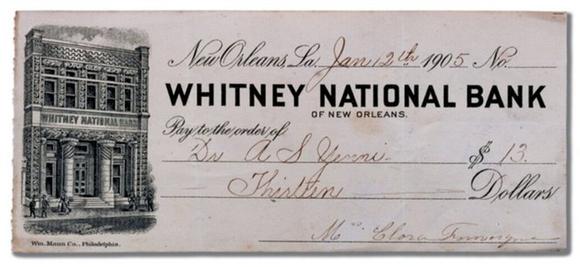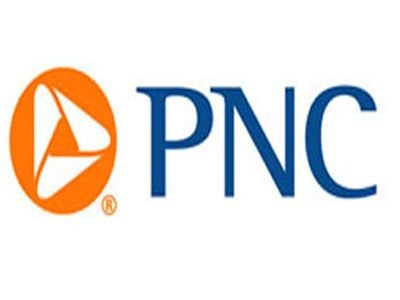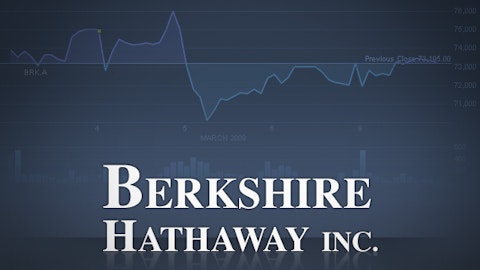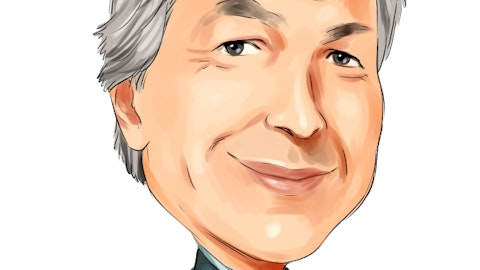
Bank check from Whitney Bank, New Orleans, Louisiana, 1905. Source: Wikimedia Commons.
“The old model is basically broken,” William S. Demchak, CEO of PNC Financial Services (NYSE:PNC), said last week at a gathering of industry analysts. “Given the changes in the operating environment, banking in the future has got to be very different from banking in the past.”
It isn’t often that a CEO of Demchak’s caliber makes absolute claims like these in a public forum. A survey of the speeches given by his peers at the same conference shows that most hemmed closely to the industry’s prevailing talking points about fee income diversification and expense reduction.

For the past few decades, banks have used free checking accounts to establish initial contact with customers. On its second-quarter conference call, an analyst asked John Stumpf, CEO of Wells Fargo & Co (NYSE:WFC), whether there is a “lead product you guys have that sort of leads cross-sell?”
Yes, it’s checking accounts. That’s why when I wake up in the morning, I get here, the first thing I look at is the checking account report from the day before. I love checking accounts. I dream about them. I just — because it’s a formational account for a consumer.
The problem is that this is a money-losing proposition. As I’ve discussed before, according to the consulting company Moebs Services, the average checking account costs the nation’s biggest banks between $350 and $450 per year. Meanwhile, the average revenue per account comes in at an only $268. In other words, the average bank loses a minimum of $82 on each of its free checking accounts.
This is the backdrop, in turn, for Demchak’s observation that, “what is clear is that the model in which the industry has operated for decades just is not sustainable today.”
In the old days, a bank could give away our core product, checking accounts, and we’d make our money on the interest on deposits, overdraft and other fees, and the interest that we collected on loans. It’s really not so true anymore. Industry revenue has been negatively affected by billions of dollars due to the historically low interest rates, the higher cost of regulatory compliance, and the significant reduction of our overdraft and other fees due to regulatory changes.
Now, to be clear, this doesn’t mean free checking is already extinct. As my colleague Matt Koppenheffer discussed here, Huntington Bancshares Incorporated (NASDAQ:HBAN) has an “Asterisk-Free Checking” product that’s free of monthly fees. In addition, both Wells Fargo & Co (NYSE:WFC) and Bank of America Corp (NYSE:BAC) have free checking options available to customers that meet certain conditions, such as having direct deposit and maintaining a designated minimum balance.
What it does mean, however, is that things are changing. And they’re moving away from, as opposed to toward, free formational products.
Given the changes in the operating environment, banking in the future has got to be very different from banking in the past, where with clearly offered choices from the lineup of the company’s products and services, and transparency in pricing, so that customers know what they’re going to pay for services that they select. It’s not an idea that’s very dissimilar from a number of other industries, if you think about cable and cell phone companies, but it’s a new and necessary direction for retail banking, that is customer-focused and sustainable.
While it’s hard to argue against Demchak’s point, at the same time, let’s hope the cable and cell phone industries aren’t universally looked to as the models of transparency and fairness in pricing.
The article The Future of Free Checking According to PNC’s CEO originally appeared on Fool.com and is written by John Maxfield.
John Maxfield owns shares of Bank of America. The Motley Fool recommends Bank of America and Wells Fargo. The Motley Fool owns shares of Bank of America, Huntington Bancshares, PNC Financial Services, and Wells Fargo.
Copyright © 1995 – 2013 The Motley Fool, LLC. All rights reserved. The Motley Fool has a disclosure policy.




